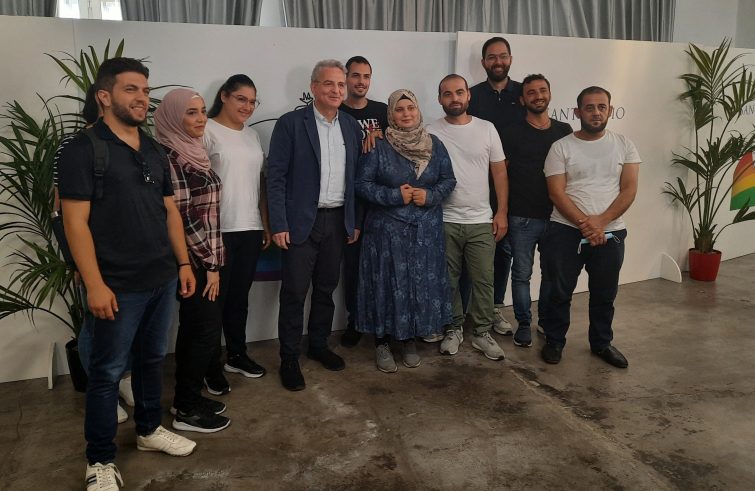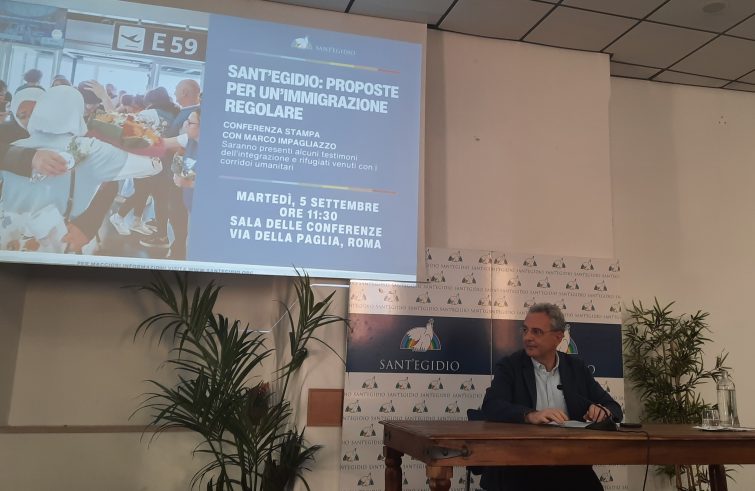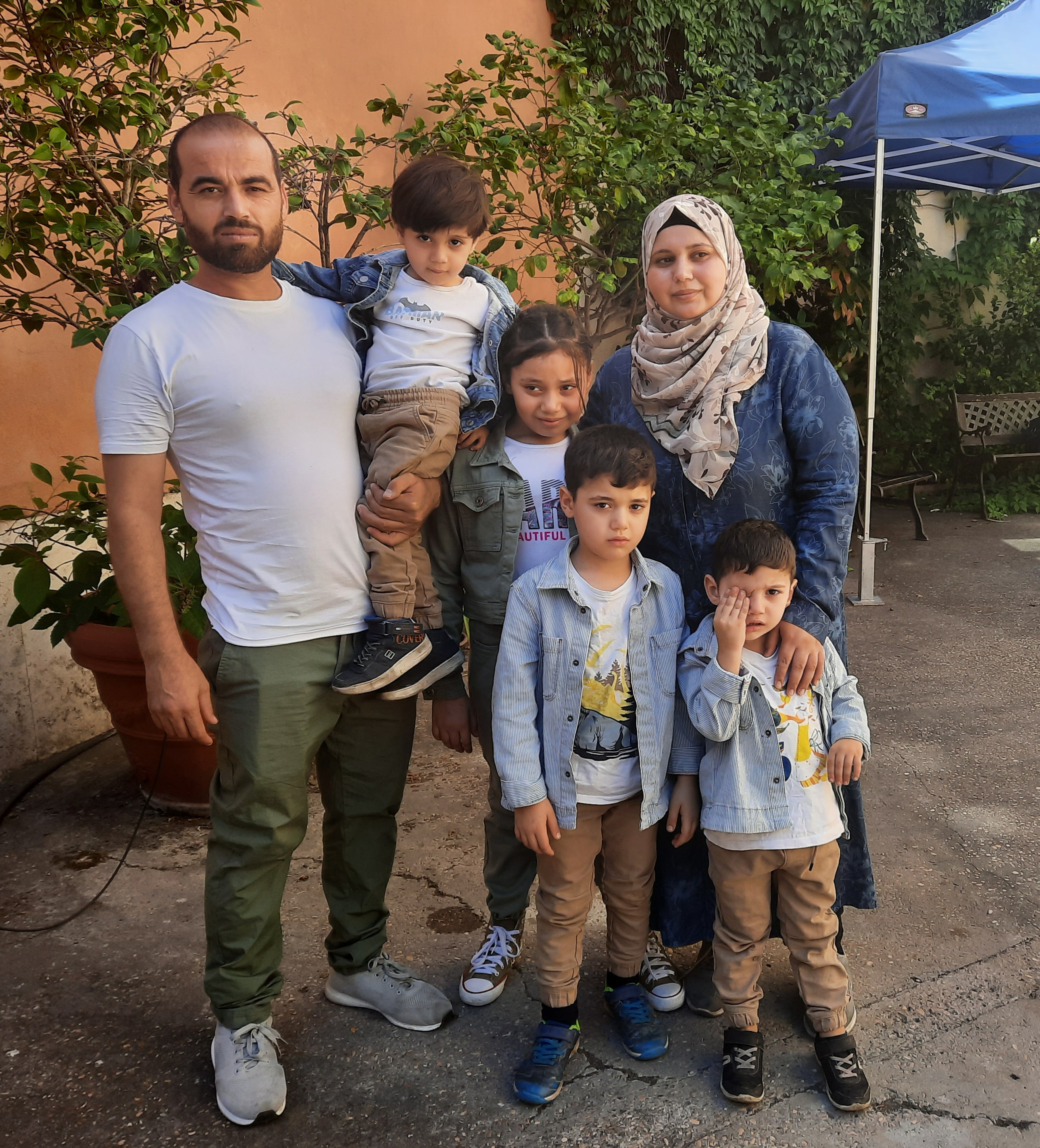
From Europe’s responsibility to saving human lives, to the recognition of unaccompanied minors as a resource for Italy. These are some of the proposals that the Community of Sant’Egidio has recently presented to the State institutions in order to ensure that migration is treated as a structural phenomenon and no longer as an emergency.
“No more deaths at sea, the priority is to save human lives. Europe is unconcerned and is shifting all the responsibility to Italy. When it comes to rescues at sea, Europe must face up to its responsibilities and help Italy financially. Funds are available”: this was the first proposal on legal immigration presented by Marco Impagliazzo, President of the Community of Sant’Egidio, at a press conference held today in Rome. Referring to recent legislation, Impagliazzo called for “renewed efforts to transport migrants to the nearest safe ports, because as things stand today, we are only adding more suffering to the pain.”
“It is necessary to stop treating immigration as an emergency and to adopt medium- and long-term policies, because it is a structural phenomenon.”
Despite the high numbers – 131,000 arrivals since the beginning of the year – “they are still lower than the 181,000 people who arrived in 2016 during the Syrian crisis. The reception of 5 million Ukrainians in Europe has shown that the phenomenon can be successfully managed.”
Appeal to EU countries: “Increased resettlements.” Proposals include a request to increase the resettlements of people fleeing war: “The numbers are still too low because of the selfishness of some European countries, which have not taken anyone in”.
Widespread reception in small centres. With regard to Italy, the Community of St.Egidio calls for the promotion of hospitality in small local centres and throughout the territory, rather than in large, overcrowded centres, with priority given to the study of the Italian language and vocational training.
Unaccompanied minors, “to invest in them with education and job opportunies.” A special section is dedicated to unaccompanied minors, about 20,000 of whom are currently in centres (out of 30,000 arrivals): “A country struggling with low birth rates and the depopulation of inland villages, with a shortage of workers in certain sectors, could invest in these young people by promoting education and job placement. Let us not waste this opportunity! Otherwise, they will all flee to foreign countries or be at risk of committing crimes because they have to send money to their families.” Impagliazzo also called for “speeding up” bureaucratic procedures for fostering these children (4,800 currently live with Italian families). These are all good practices that should be strengthened”.
Decree on immigration flows, “increase the quota for caregivers”. While welcoming the extension of the decree on immigration flows, which provides for 450,000 non-EU citizens to be granted Italian visas for employment in the period 2023-2025, the quota reserved for caregivers (9,500 visas) is too low and should be increased: “It is disproportionate to the needs of Italian families, given that our population is increasingly ageing”. In addition, Impagliazzo recalled that “thousands of migrants who have applied to regularise their status in 2020 are still awaiting regularisation due to serious bureaucratic setbacks that could easily be resolved with a decree.” Another request concerns the recognition of educational qualifications obtained abroad, for example for nurses, of which there is a serious shortage in Italy.
The Syrian family. Many refugees, welcomed by the Community of Sant’Egidio within the framework of the Humanitarian Corridors, were present: Afghans, Syrians, Sub-Saharan Africans. Among them was a Syrian family with four children: the youngest is three years old, the oldest ten. “We came from Homs, our house was destroyed, like the whole city,” said the parents, Marua and Abdel Karim. “We left with visas for Egypt and then travelled to Libya, where we lived for ten years. Life there is very hard and difficult. There are many kidnappings, widespread violence, and if you refuse to do what they ask, they kill you.” This is what happened to Marua’s brother when he was only 33: “We found him dead in the house.” They arrived from Libya nine months ago through the humanitarian corridors. Now their dream is for their children to be able to study and to stay in Italy. “The most important thing for us is for our children to grow up in a safe place and for them to go to school. Insciallah.”
Gil is from Cameroon, where he fled in 2019 because of the political situation in the country. He was one of those who took to the streets to protest against corruption. He managed to complete his Geographical Sciences degree at a university in Cyprus. But it is difficult to pay college fees without a job. He decided to move to the Greek part of Cyprus, where he came into contact with the Community of Sant’Egidio, which arranged for him to be placed in the humanitarian corridors. “I have been here for only four months,” he says, trying to put into practice the Italian lessons he has taken. “Italy is a good country, I felt welcomed with open arms. My aim is to improve my language skills in order to be better integrated. I would like to continue my studies and do research in this field. I want to contribute to the future of my country.”















